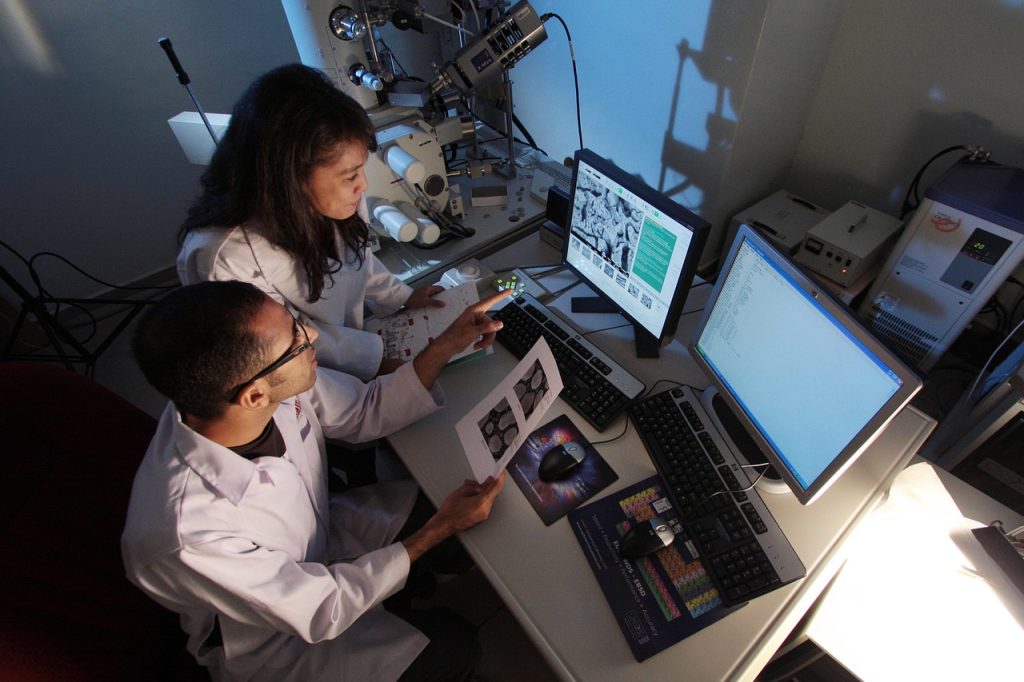Table of Contents
The intersection of biotechnology and health technology is revolutionizing the medical field, offering innovative solutions that enhance diagnostics, treatment, and patient care. As these fields rapidly evolve, they promise to reshape the landscape of healthcare with groundbreaking advancements. This article explores some of the most significant advancements in biotechnology and health tech, highlighting their impact on medicine and patient outcomes.

1. Gene Editing and CRISPR Technology
Gene editing technologies, particularly CRISPR-Cas9, represent one of the most transformative advancements in biotechnology. CRISPR allows scientists to make precise modifications to DNA, offering potential cures for genetic disorders such as cystic fibrosis, sickle cell anemia, and muscular dystrophy. By targeting and correcting faulty genes, CRISPR has the potential to prevent or even eradicate inherited diseases. Ongoing research and clinical trials are exploring its applications in cancer treatment, where CRISPR is used to modify immune cells to better target and destroy cancer cells.
2. Personalized Medicine
Personalized medicine leverages genetic, environmental, and lifestyle information to tailor treatments to individual patients. Advances in genomics and bioinformatics have enabled the development of personalized treatment plans that consider a patient’s unique genetic makeup. This approach improves the efficacy of treatments and reduces the risk of adverse effects. For instance, pharmacogenomics studies how genetic variations affect drug metabolism, allowing for more precise medication dosages and choices. Personalized medicine is also advancing in oncology, where genetic profiling of tumors helps identify targeted therapies that are more effective for specific cancer types.
3. Telemedicine and Remote Monitoring
Telemedicine has seen rapid growth, particularly accelerated by the COVID-19 pandemic. It allows patients to consult healthcare providers remotely through video calls, reducing the need for in-person visits and expanding access to care. Remote monitoring technologies, including wearable devices and mobile health apps, enable continuous tracking of vital signs, glucose levels, and other health metrics. These technologies provide real-time data to healthcare professionals, facilitating early detection of potential health issues and improving chronic disease management. For example, wearable ECG monitors can detect arrhythmias, and continuous glucose monitors can help individuals with diabetes manage their condition more effectively.
4. Artificial Intelligence (AI) and Machine Learning
AI and machine learning are transforming healthcare by enhancing diagnostic accuracy, optimizing treatment plans, and predicting patient outcomes. AI algorithms can analyze medical images, such as X-rays and MRIs, with high precision, often surpassing human radiologists in detecting abnormalities. Machine learning models are used to predict disease progression, personalize treatment strategies, and identify potential drug candidates. For instance, AI-driven platforms are being used to analyze large datasets in drug discovery, accelerating the development of new therapies. Additionally, AI chatbots and virtual assistants are improving patient engagement and providing support for managing health conditions.

5. Regenerative Medicine and Stem Cell Therapy
Regenerative medicine aims to repair or replace damaged tissues and organs using advanced techniques, including stem cell therapy and tissue engineering. Stem cells have the potential to differentiate into various cell types, offering the possibility of regenerating damaged tissues or treating degenerative diseases. For example, stem cell therapy is being explored for conditions such as spinal cord injuries, heart disease, and neurodegenerative disorders. Tissue engineering combines cells, scaffolds, and bioactive molecules to create functional tissue replacements. Advances in this field hold promise for developing artificial organs and repairing damaged tissues with greater precision.
6. Nanotechnology in Medicine
Nanotechnology involves manipulating materials at the nanoscale (1-100 nanometers) to create innovative medical applications. In medicine, nanotechnology is used for targeted drug delivery, imaging, and diagnostic purposes. Nanoparticles can be engineered to deliver drugs specifically to diseased cells, minimizing side effects and improving treatment efficacy. For instance, nanoparticles are being developed to deliver chemotherapy drugs directly to cancer cells, reducing the impact on healthy tissues. Additionally, nanoscale imaging agents enhance the sensitivity and resolution of diagnostic imaging techniques, enabling early detection of diseases.
7. Bioprinting and 3D Printing
Bioprinting and 3D printing technologies are revolutionizing the field of tissue engineering and regenerative medicine. Bioprinting involves creating three-dimensional structures of living tissues using bioinks composed of cells, growth factors, and biomaterials. This technology has the potential to produce complex tissue constructs and organ models for research, drug testing, and transplantation. 3D printing is also used to create customized prosthetics, implants, and surgical tools, allowing for precise and personalized medical solutions. The advancement of bioprinting holds the promise of printing functional organs for transplantation in the future.
8. Advancements in Vaccine Technology
The development of mRNA vaccines, such as those used for COVID-19, represents a significant advancement in vaccine technology. mRNA vaccines work by instructing cells to produce a protein that triggers an immune response, offering protection against specific pathogens. This technology has proven to be highly effective and adaptable, paving the way for rapid responses to emerging infectious diseases. Researchers are exploring the use of mRNA vaccines for other infectious diseases, cancer immunotherapy, and personalized vaccines tailored to individual genetic profiles.

Conclusion
Advancements in biotechnology and health tech are driving a new era of medical innovation, offering unprecedented opportunities to improve patient care, enhance treatment outcomes, and address complex health challenges. From gene editing and personalized medicine to AI and regenerative therapies, these technologies are transforming the landscape of healthcare. As research and development continue to advance, the integration of these innovations into clinical practice holds the promise of more effective, personalized, and accessible healthcare solutions, ultimately contributing to a healthier and more resilient society.